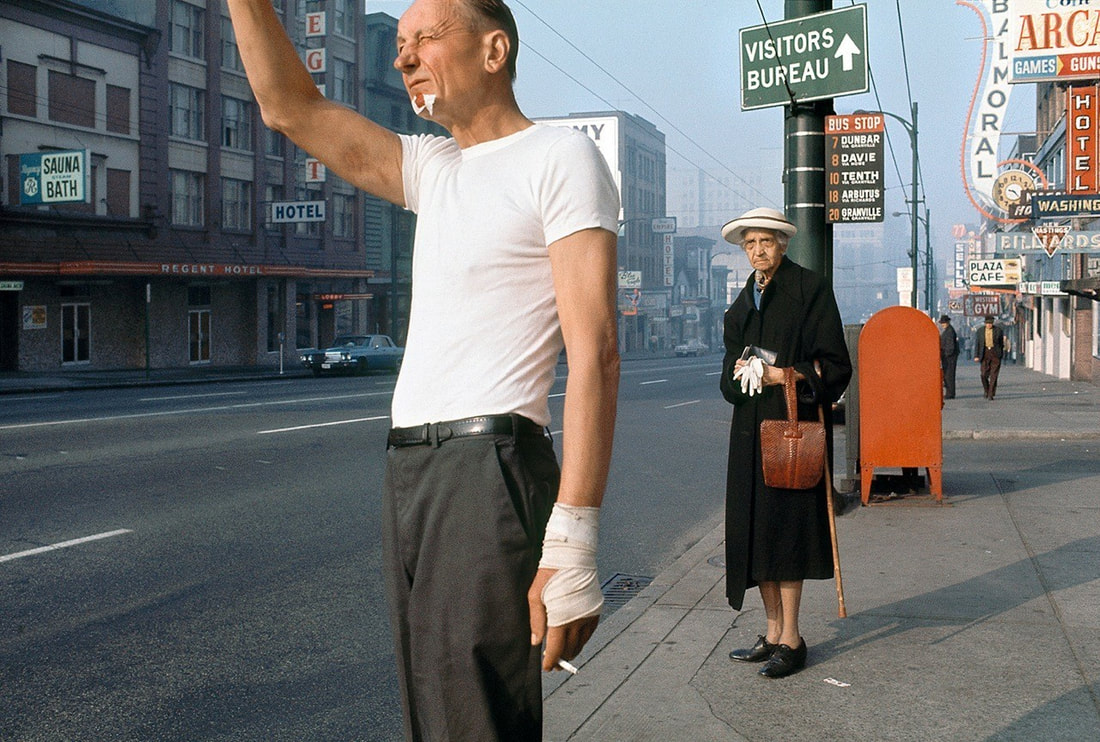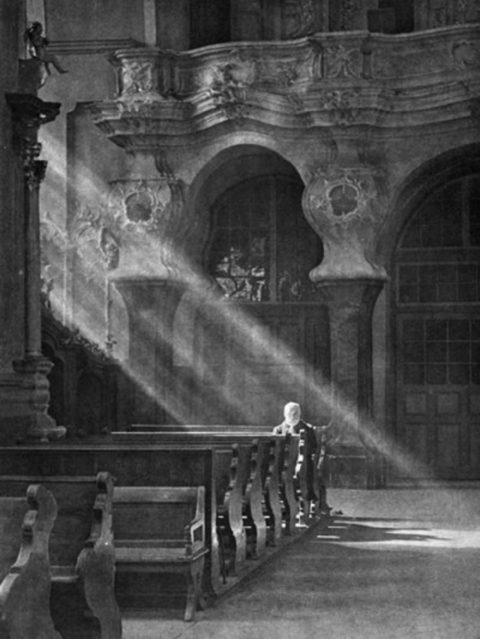Užrašytos fotografijos/Annotated Photographs, by Marius Burokas, Translated by Rimas Uzgiris4/3/2020 Užrašytos fotografijos/Annotated Photographs I. Rašytojų nuotraukos stengiausi jus perprasti žiūrėjau į veidus bet iš tikrųjų ieškojau ne jų paslapties ieškojau savo – ar mus sieja kas nors: gija, siūlas, ryšys ar esam paliesti to paties piršto ar laiku pakėlėme to juodo telefono ragelį ar pervėrė mus tvyksnis šviesa kai žinai: tau duota tau praskleidė uždangą pelnytai žinoma, pelnytai tie spąstai tas žinojimas priklausomybė saldi nekantra pelnytai visų veiduose atsispindi tas pats sutrikimas nuostaba drovus įžūlumas puikybė 1. Photographs – Writers I tried to grasp you I stared at your faces but was never really looking for the secrets they contain – I was searching for mine: whether something connects us a thread, a cord, a tie whether we are touched by the same finger whether we picked up the black receiver in time whether the spark pierced us the light when you know it is given to you the curtain parts deservedly certainly, deserved those snares that knowing the dependence and sweet impatience deserved reflecting in every face that same derangement wonder the coy audacity the haughtiness II Fred Herzog: Man with Bandage, 1968 skutosi įsipjovė klijavo kruopščiai iš įtūžio virpančiais pirštais pleistro kryželį ir išlėkė kaip stovi marškinėliais baltais tuščia mieste tik juodosios našlės šildosi ryto saulėje snaudžia taksistai juodosios našlės nulydi jį žvilgsniais krutina lūpas: – sūnau girdėjom šiąnakt tave niūrūs tavo sapnai duobėti klausėm kaip švilpia tavo plaučiai dunksi širdis žinom gyvenimo turi kiek siekia rankos o mirties – nuo viršugalvio iki padų jis stovi nudiegtas vaiskiam ore priešais driekias trys gatvės ir mirksi mirksi geltona 2. Fred Herzog, Man with Bandage, 1968 he cut himself shaving and painstakingly pasted fingers trembling in fury a bandaid cross on his chin then fled as he was wearing a white t-shirt the city is empty only widows clothed in black warm themselves in the morning sun while taxi drivers nap and the black widows trace his passage their lips mumble sonny we heard you last night your dreams are dreary cratered we listened to your lungs wheeze and your heart pound we know you have life as far as your hands reach and death from head to toe he stands stock still in the bracing air three streets stretch before him and the yellow light flashing flashing III Masahisa Fukase, The Solitude of Ravens, 1975/1976 varnų mėnuo varnų vienatvė medžiuose tykšta tamsa varno nagas mėnesio nagas ją pradreskia kartus tavo kranksmas varne kirsk kranto ledą varne lesk mano tamsą išpėduok ant pamėkliško sniego mano krytį 3. Masahisa Fukase, The Solitude of Ravens, 1975/1976 raven moon raven solitude splashes of darkness in the trees torn by the raven’s claw the moon’s talon bitterly you caw raven now break the bank’s ice raven peck out my darkness mark my fall on ghostly snow with your feet View Algimantas Kuncius' photos, including Palm Sunday by the Gates of Dawn, here. (Right side, second down, three figures with fronds.) IV Algimantas Kunčius, Verbų sekmadienis prie Aušros vartų, 1968 išaugtais švarkais nubruožtais batais pakaušiai gruoblėti kaip grindinio akmenys su gėlos vandeniu akyse ir trim kalbomis burnoje gniaužia verbeles – – – – – – – – tiek metų tiek metų praėjo tik variokuose keičiasi herbai 4. Algimantas Kunčius, Palm Sunday by The Gates of Dawn, 1968 outgrown coats scuffed boots back bones like cobblestoned streets with stinging water in their eyes and three tongues in their mouths they clutch their willow fronds - - - - - - - - - - - - all those years all those years have passed and only the crests in copper coins have changed V Jan Bułhak, Vakaro malda, 1900 ant galinių klauptų maudžiančiam šalty ar yra man vietos? vienam po skliautais tavyje, už tavęs po tavo lukštu ar yra? – – – – – – – nors galėčiau ir nebeklausti atsakei į viską mano gyvenimu 5. Jan Bułhak, Evening Prayer, 1900 to kneel on the back pew in aching cold is there space for me? alone under the vault in you, behind you under your shell is there? - - - - - - - - maybe I don’t need to ask questions you already answered with my life Marius Burokas translated from the Lithuanian by Rimas Uzgiris These poems were first published in Marius Burokas' book, Now I Understand (2018, Parthian). "Photographs-Writers" also appeared in The Brooklyn Rail. Marius Burokas is a poet and translator. He studied Lithuanian language and literature at Vilnius University. Now he is a freelance writer and translator. Marius made his debut with the poetry collection Ideograms (Ideogramos) in 1999. His third book – I‘ve Learned How Not To Be (Išmokau nebūti, 2011) was awarded The Young Yotvingian prize as a best young poet’s book, published in the last two years. This book was also awarded the Antanas Miškinis literary prize. In 2016, he won the Mayor’s Prize for poetry about Vilnius. He was editor in chief of How the Earth Carries Us: Twenty-Six Young Lithuanian Poets (Vilnius, 2015), and is now editor of the Vilnius Review. 2018 saw the release of his fourth poetry collection: Svaraus buvimo (Of Clean Being), and his first collection in English: Now I Understand (2018, Parthian). Burokas’ poetry has been translated into Polish, Russian, Latvian, Finnish, Slovenian, English, German and Ukrainian. Some of his poetry is also published in the New European Poets anthology (2008). He has translated the poetry of Allen Ginsberg and William Carlos Williams, and the prose of James G. Ballard, Charles Bukowski, Philip Roth, Jeanette Winterson and others. Rimas Uzgiris is a poet, translator, and critic. His work has appeared in Barrow Street, AGNI, Iowa Review, Hudson Review, The Poetry Review (UK) and other journals. He is the author of North of Paradise, published by Kelsay Books (2019). Tarp, his poetry in Lithuanian translation also appeared in 2019. He is translator of Caravan Lullabies by Ilzė Butkutė (A Midsummer Night’s Press), Then What by Gintaras Grajauskas (Bloodaxe), Now I Understand by Marius Burokas (Parthian), The Moon is a Pill by Aušra Kaziliūnaitė (Parthian), and Vagabond Sun by Judita Vaičiūnaitė (Shearsman). Uzgiris has contributed significantly as editor and translator to two anthologies: How the Earth Carries Us: New Lithuanian Poets (Lithuanian Culture Institute), and New Baltic Poets (Parthian). He holds a Ph.D. in philosophy from the University of Wisconsin-Madison, and an MFA in creative writing from Rutgers-Newark University. Recipient of a Fulbright Scholar Grant, a National Endowment for the Arts Literature Translation Fellowship, and the Poetry Spring 2016 Award for translations of Lithuanian poetry into other languages, he teaches translation at Vilnius University.
0 Comments
Your comment will be posted after it is approved.
Leave a Reply. |
The Ekphrastic Review
COOKIES/PRIVACY
This site uses cookies to deliver your best navigation experience this time and next. Continuing here means you consent to cookies. Thank you. Join us on Facebook:
Tickled Pink Contest
April 2024
|





